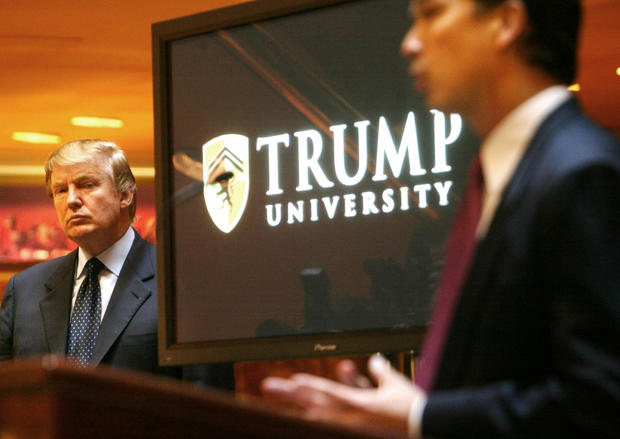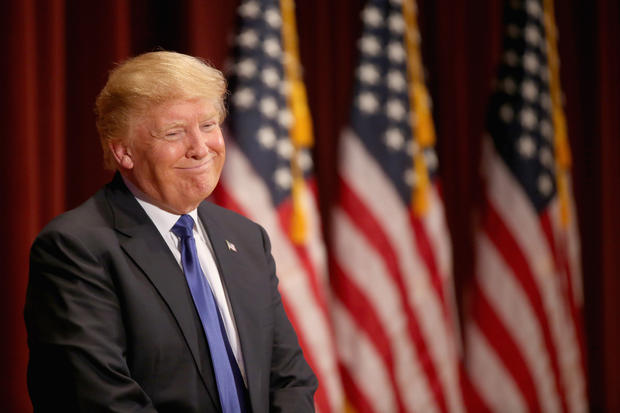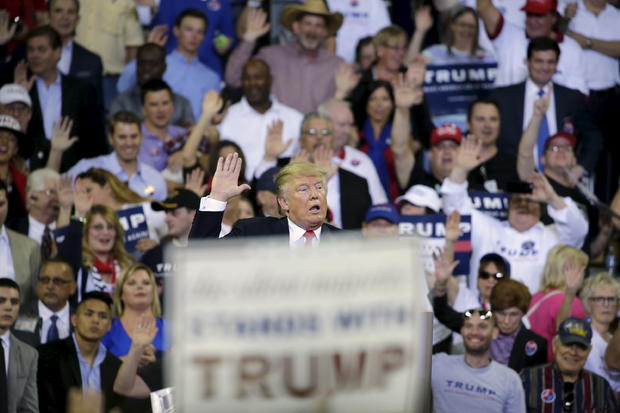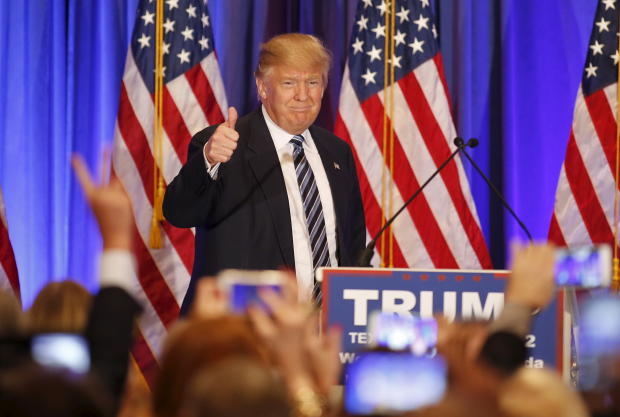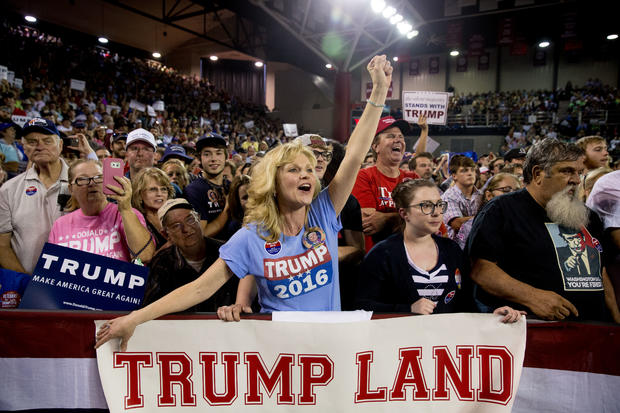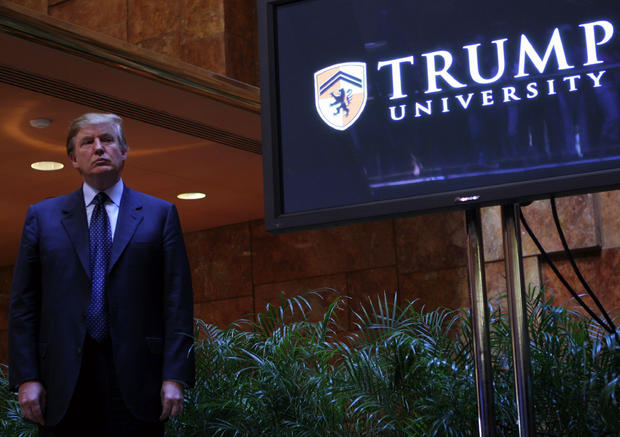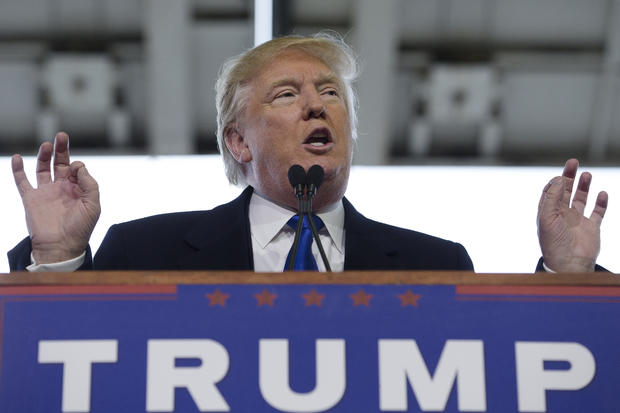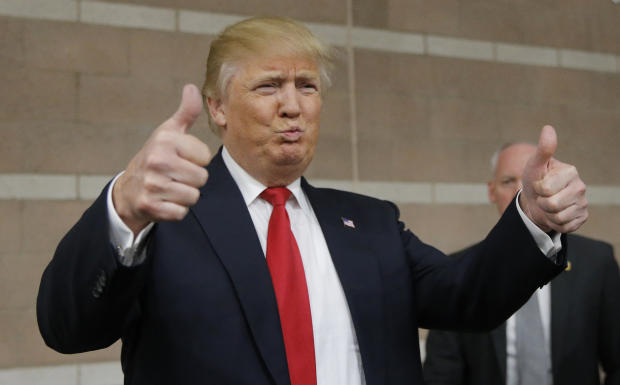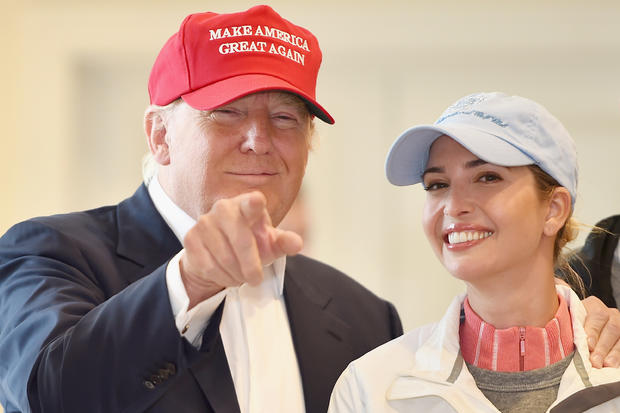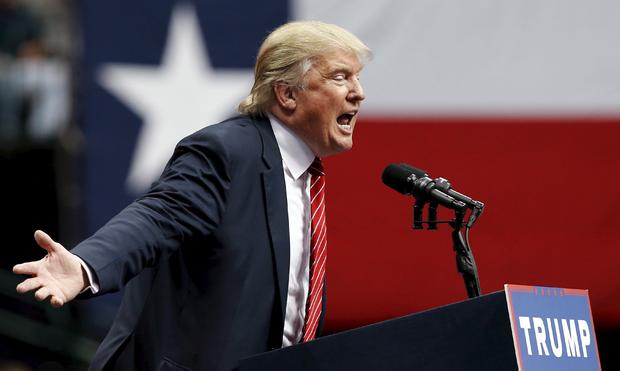9 questions about Trump University answered
Before winding down in 2010, Trump University sold nearly 7,000 students on learning business mogul Donald Trump's real estate secrets.
More than 150 former students allege it was a fraud. Three lawsuits have been filed, one $40 million case in New York brought by the state's attorney general and two class action suits in California.
As the Republican runs for the 2016 presidential bid, many are calling into question his University endeavor.
In the next nine slides, CBS News answers common questions about Trump University.
Was it a university?
No, it started as a free three-hour seminar where participants would be encouraged to sign up for a $1,500 three-day seminar.
Then during the three-day seminar, participants would be encouraged to sign up for a $35,000 mentorship program. Only 572 students actually went on to the $35,000 level, according to court documents.
Calling itself a "university" got the school in trouble with the New York State Department of Education.
How many students attended Trump University?
According to court documents, 6,698 students signed contracts to attend either the three-day seminar or sign up for further education like the $35,000 mentoring program.
Of those students, 2,539 got refunds. Over 80,000 people attended the free ballroom three-hour seminar that got people in the door, according to court documents.
Who were the instructors?
Early on when it was an online distance learning program, CBS News confirmed the instructors were affiliated with Ivy League schools.
But in 2007 when Trump University began its ballroom seminars around the country, it recruited instructors who were regulars on the motivational seminar circuit.
Why would someone pay $35,000 for a real estate “mentoring” program?
The Trump gold elite package was pushed hard by the instructors in the live ballroom three-day sessions, according to court documents and conversations with former students.
Participants say they were told they would be a part of "a family" and that there would be a hotline they could access for advice.
But the Trump University president said in court papers, "We don't have a hotline that students can call in and get their questions answered."
Students were told they would have access to "hard money lenders" who could provide them the investing money to buy houses and flip them.
However, students told CBS News the list they were given was publicly available.
Some students were also told they would make the money back. One instructor told a student she would make $25,000 back in 60 days, according to an affidavit filed with the court.
How did the students afford it if they weren’t wealthy to begin with?
Students and affidavits filed by students, describe that during the three day session they were encouraged to call their credit card companies and ask for a higher credit limit so that they could use the money to invest in new houses.
However, "...when people said they didn't have enough money to pay for the Trump Elite programs, [the instructor] suggested using the newly increased credit card limit..." according to one court affidavit.
Did anyone ever investigate them while they were in business?
At the time, the Texas Attorney General investigated Trump University and sent them a subpoena, according to court documents.
The New York Attorney General says Trump University stopped providing classes in Texas right after they were sent the subpoena.
What were the Trump secrets that were shared?
Course material was written by people who had done prior real estate coaching or business teaching, not Trump.
CBS News found one workbook was written by a company, Prosper Inc. in Utah known as a "boiler room" that called people at home to pitch them Trump University.
Another curriculum developer was David Early, whose business creates coaching materials, according to the New York State Attorney General.
What about the 98 percent approval rating?
Donald Trump touts the 98 percent approval rating from Trump University students.
That's based on 98 percent of the surveys being positive. The surveys are mostly from the last day of the three day $1,500 seminar which 5,950 people attended.
Most surveys are positive using words like "exceptional" and "great seminar."
But there are also complaints.
One student complained that participants were ridiculed if they got up to go to the bathroom.
Another survey from 2008 read, "During the hard sell of the mentorship program on Day 2, I felt depressed and discouraged that we couldn't make it without investing another $35,000 that we don't have."
Surveys show many students expected mentoring and support from Trump University to continue after the three day seminar was over.
One student wrote when asked how Trump University could help them meet their goals, "Support us as promised," another said, "Look over every deal I make in the future."
Yet another said, "Show me a deal, charge me then."
Another participant wrote, "Lower the mentor costs...We found a mentorship program through Trump Institute that was significantly less expensive and appeared to be identical in what was offered."
How much money did Trump make from Trump University?
The New York Attorney General claims Trump made $5 million from the school.
Complainants say they were told Trump was doing this for his legacy.
Trump had a 93 percent ownership stake, according to court documents.
